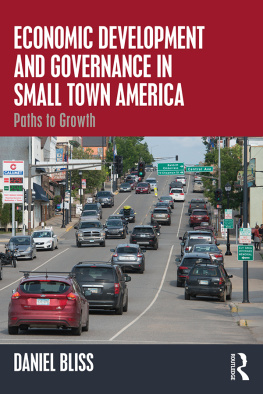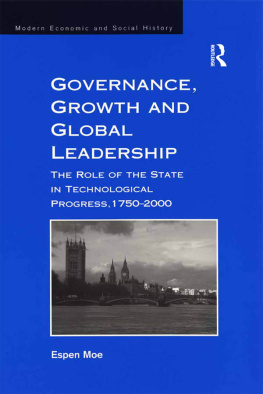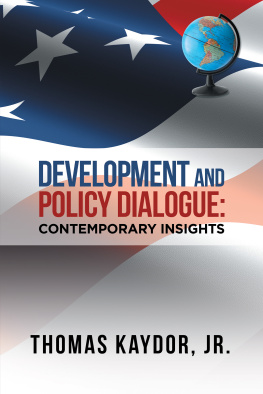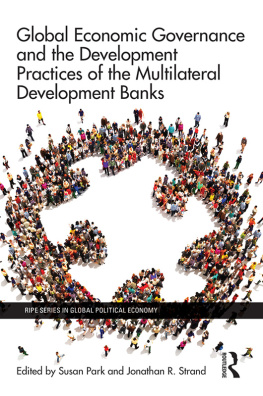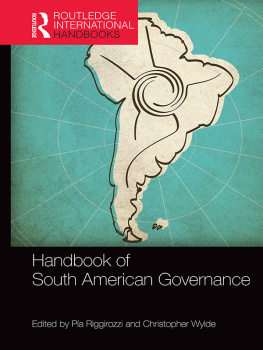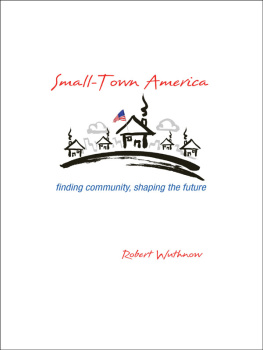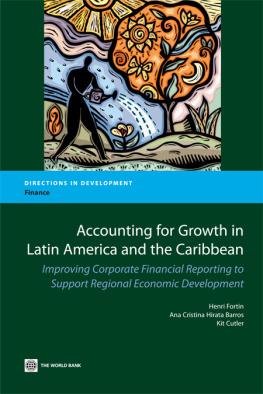Economic Development and Governance in Small Town America
Who governs? And why? How do they govern? These remain vital questions in the politics of our small cities and towns. In this new book, author Daniel Bliss takes issue with those who believe that small towns and cities are fatally vulnerable to the pressures of a global economy. Based on in-depth analyses of small town America, this book demonstrates how political agency can address and solve real problems affecting US towns, including capital flight, industrial closures, and job losses. Bliss illustrates how small localities exercise choices such as nurturing local businesses and developing infrastructure rather than engaging in a race to the bottom, and heavily mortgaging tax revenues to attract large box retailers and small box call centers while passively watching more productive firms and better-paying jobs slip away.
Taking careful account of comparative literature as well as variations in city governments, their planning agencies, and their relations with state authorities, this book explores the ways in which local politicians and public planning bodies can mobilize local constituencies to weather global challenges and common structural problems such as unfavorable demographics, skill shortages, and out-migration. Economic Development and Governance in Small Town America holds out the promise of meaningful democratic change even in unfavorable political and economic circumstances.
Daniel Bliss is Assistant Professor of Political Science at the Illinois Institute of Technology, USA.
Daniel Bliss presents a remarkably timely and thoughtful analysis of small town governance in the United States. In contrast to the uncritical romanticism and victimization narratives often drawn on to depict rural and small towns, Bliss makes a powerful empirical case for how local institutional capacity and citizen involvement shape differences in effective local problem solving.
Susan Clarke,University of Colorado at Boulder, USA
Economic Development and Governance in Small Town America
Paths to Growth
Daniel Bliss
First published 2018
by Routledge
711 Third Avenue, New York, NY 10017
and by Routledge
2 Park Square, Milton Park, Abingdon, Oxon, OX14 4RN
Routledge is an imprint of the Taylor & Francis Group, an informa business
2018 Taylor & Francis
The right of Daniel Bliss to be identified as author of this work has been asserted by him in accordance with sections 77 and 78 of the Copyright, Designs and Patents Act 1988.
All rights reserved. No part of this book may be reprinted or reproduced or utilised in any form or by any electronic, mechanical, or other means, now known or hereafter invented, including photocopying and recording, or in any information storage or retrieval system, without permission in writing from the publishers.
Trademark notice: Product or corporate names may be trademarks or registered trademarks, and are used only for identification and explanation without intent to infringe.
Library of Congress Cataloging-in-Publication Data
Names: Bliss, Daniel, 1970 author.
Title: Economic development and governance in small town America : paths to growth / Daniel Bliss.
Description: 1 Edition. | New York : Routledge, 2018. | Includes bibliographical references and index.
Identifiers: LCCN 2017045371 | ISBN 9780815393719 (hardback : alk. paper) | ISBN 9780815393726 (pbk. : alk. paper) | ISBN 9781351188036 (ebook)
Subjects: LCSH: Cities and townsUnited States. | Cities and townsGrowth. | Economic developmentGovernment policyUnited States.
Classification: LCC HT384.U5 B55 2018 | DDC 307.760973dc23
LC record available at https://lccn.loc.gov/2017045371
ISBN: 978-0-815-39371-9 (hbk)
ISBN: 978-0-815-39372-6 (pbk)
ISBN: 978-1-351-18803-6 (ebk)
Typeset in Times New Roman
by Out of House Publishing
Contents
This book grew out of the interaction of a liking for small towns with a life experience that friends have compared to a plot line from the TV show Northern Exposure but seemed natural to me at the time. I grew up in a small town in England, and regularly came back to the United States to visit my relatives in similarly small communities in the Midwest. The more relevant life experience (in terms of this project) was a flyer I took early in my career on a small but visionary independent newspaper in northern Minnesota, The Timberjay. I was looking for a journalism job that would let me cover state and local government, and, with the role that Timberjay owners Marshall Helmberger and Jodi Summit gave me, I had an immersive experience in reporting and occasionally editorializing on small town government and planning. My subsequent switch to academia was a chance to gain a more analytical appreciation of the subject, and to take a broader look at the structural limitations in which local governments operate.
Observing city, township, school, county and state government first as a journalist and then as an academic has given me a great appreciation for their work. I saw a struggle to recover from a globally driven recession in the steel industry; and I saw the extent to which state aid to these communities provided a valuable leg-up and a desperately needed safety margin, but often came accompanied by awkward conditions and a startling indifference to places that didnt fit the perspective of state politicians. These observations were reminiscent of what Id seen a few years earlier on an internship in the United Kingdom studying the local government response to the Channel Tunnel, a situation in which, at least on the English side of the channel, municipalities (district councils in English parlance) and counties were operating without the tools they needed.
Both my return to graduate school in political science and this project were an effort on my part to learn more and be in a position to say more in a way, I hope, will be helpful to private citizens and policy-makers alike. Small towns can, and often do, provide better access to public officials and business leaders than larger cities. They are functional examples of policies and institutional forms of governance that are applicable to communities of all sizes. In particular, I saw the project as a useful opportunity to refine the methods of urban policy and politics research and apply them to places even non-urbanists would identify with.
There is a long list of people to thank. First of all, I am indebted to the more than 100 survey respondents across the four communities, ranging from elected officials to staff at local and state agencies to business leaders and activists, whose interviews, some of them as long as three hours, several of them on multiple occasions, provided crucial insight into these towns over a course of a decade, through doctoral research and then the development and expansion of this project into a book.
I would like to thank people who have supported the project in additional ways, helping out with feedback on the manuscript, special insights into the communities, places to stay, access to records and facilities, and other forms of advice and/or support. These include Sterling, Ill. mayor Skip Lee and his family in Sterling, Marshall Helmberger at the Timberjay Newspapers in Tower and Ely, Minn., Barb Berglund, the Sterling Public Library, the Sterling-Rock Falls, Ely-Winton and Hibbing Historical Societies, the


